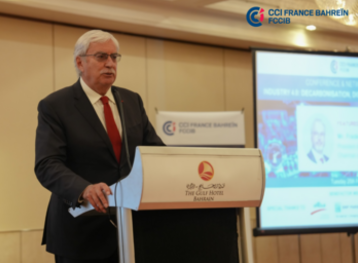Hoteliers ‘must rethink strategy in Covid era’
HOTELIERS need to adopt new strategies, by offering attractive staycation rates and flexible cancellation policies, as international tourism is only expected to rebound by the fourth quarter of this year.
The hospitality and tourism sector in Bahrain has been the worst hit due to the pandemic with flights and visa restrictions and the closure of King Fahad Causeway (since March 8), through which around 13 million visitors arrive in the country annually.
Experts said yesterday that the estimated loss to Bahrain’s hospitality sector at the end of the year could reach BD500 million, including BD400m for airlines and BD100m for hotels, travel agents and event management companies.
In addition, the sector that employs about 58,000 people continues to see hotels laying off its staff or downsizing operations due to poor business and high operating costs.
“Majority of the hotel facilities such as spa, gym and swimming pool have been closed,” said Al Areen Investment Company chief executive Dr Essa Faqeeh.
“Hotels should create video advertisements about safety protocols in their premises and promote them online, create special packages for the local market, and also be flexible with their cancellation policies.”
Dr Faqeeh was speaking during a webinar on the impact of the pandemic on the hospitality and tourism sector.
Also taking part was Bahrain Chamber of Commerce and Industry (BCCI) hospitality and tourism committee chairman Hameed Al Halwachi.
The online event was organised by Enma for Training and Management Solutions.
Dr Faqeeh pointed out that the closure of the causeway had resulted in a massive drop in revenue of several sectors in the country.
“It will take about 18 months to slightly cover the losses,” he added.

Graphs showing occupancy level in four- and five-star properties from April until this month, compared with the same period last year
With reports indicating that the causeway would be reopened after Eid Al Adha, Dr Faqeeh painted three scenarios facing the industry: If the causeway is reopened next month it will have a -58 per cent impact on the travel market; if it is opened by September the impact will be -70pc which will rise up to -78 if the link is opened in December.
In April the occupancy level in four-star hotels was 9pc (compared with 50pc during the same period last year) and 21pc in five-star facilities (compared with 63pc during the same period last year).
Dr Faqeeh said the occupancy level in May was 10pc in four-star facilities and five-star hotels respectively, while this month it was 13pc in four-star and 17pc in five-star hotels.
Mr Halwachi said only 5pc to 8pc of hotels are expected to reach the room occupancy level of 55pc this year.
“Covid-19 has handicapped every sector and the global losses estimated could be over $25 billion in the hospitality and airlines sectors,” he said.
“In Bahrain, the estimated room occupancy for 2021 is between 25pc and 30pc for the city hotels and between 45pc and 50pc for beachfront facilities.”
He said the above estimates were based on reopening the causeway and Gulf Air flying to all destination along with other airlines resuming operations.
“There are about 130 hotels in the country and 68 service apartments with the total number of rooms available right now being 15,600.”
He said despite the government providing relief in the form of waiving utility bills and other government fees, a solid stimulus pack is required.
“Based on our discussions with Tamkeen, a special package for the hospitality sector is expected to be announced this month,” Mr Halwachi told the GDN during the webinar.
He said there was confusion over the BD60 visitors entering the country from today will have to pay for Covid-19 tests.
“There is big confusion whether the fees will be applied to travellers arriving via the causeway, because it’s a big amount for those who come in groups and families,” said Mr Halwachi.
The GDN reported last month that during a virtual meeting with legislators government officials said travel through Bahrain International Airport had dropped by 98pc since the outbreak, while the number of visitors to shopping malls had dropped by 91pc, hotel occupancy fell by 72pc, and fuel sales reduced by 32pc.
A key survey conducted by the BCCI, covering 1,180 participants, found that 71pc of business owners from the tourism and hospitality sector expect to close their companies within the next six months, while 52pc expected to lay off more than 20pc of their staff.
Source: http://www.gdnonline.com/Details/838168/Hoteliers-‘must-rethink-strategy-in-Covid-era’


